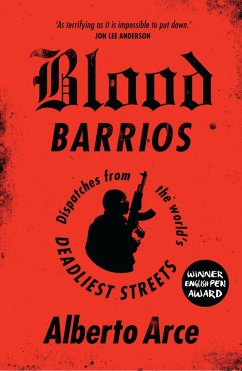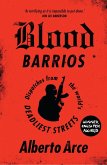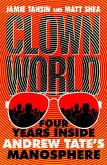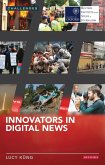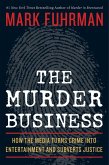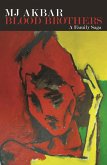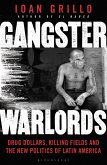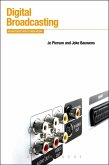Winner of the 2018 PEN Translates Award for Non-Fiction
Features illustrations by the Honduran artist Germán Andino
Welcome to a country that has a higher casualty rate than Iraq. Wander streets considered the deadliest in the world. Wake up each morning to another batch of corpses - sometimes bound, often mutilated - lining the roads; to the screeching blue light of police sirens and the huddles of 'red journalists' who make a living chasing after the bloodshed. But Honduras is no warzone. Not officially, anyway.
Ignored by the outside world, this Central American country is ravaged by ultra-violent drug cartels and an equally ruthless, militarised law force. Corruption is rife and the justice system is woefully ineffective. Prisons are full to bursting and barrios are flooded with drugs from South America en route to the US. Cursed by geography, the people are trapped here, caught in a system of poverty and cruelty with no means of escape.
For many years, award-winning journalist Alberto Arce was the only foreign correspondent in Tegucigalpa, Honduras's beleaguered capital, and he witnessed first-hand the country's descent into anarchy. Here, he shares his experiences in a series of gripping and atmospheric dispatches: from earnest conversations with narcos, taxi drivers and soldiers, to exposés of state corruption and harrowing accounts of the aftermath of violence. Provocative, revelatory and at time heart-rending, Blood Barrios shines a light on the suffering and stoicism of the Honduran people, and asks the international community if there is more that they can do.
Features illustrations by the Honduran artist Germán Andino
Welcome to a country that has a higher casualty rate than Iraq. Wander streets considered the deadliest in the world. Wake up each morning to another batch of corpses - sometimes bound, often mutilated - lining the roads; to the screeching blue light of police sirens and the huddles of 'red journalists' who make a living chasing after the bloodshed. But Honduras is no warzone. Not officially, anyway.
Ignored by the outside world, this Central American country is ravaged by ultra-violent drug cartels and an equally ruthless, militarised law force. Corruption is rife and the justice system is woefully ineffective. Prisons are full to bursting and barrios are flooded with drugs from South America en route to the US. Cursed by geography, the people are trapped here, caught in a system of poverty and cruelty with no means of escape.
For many years, award-winning journalist Alberto Arce was the only foreign correspondent in Tegucigalpa, Honduras's beleaguered capital, and he witnessed first-hand the country's descent into anarchy. Here, he shares his experiences in a series of gripping and atmospheric dispatches: from earnest conversations with narcos, taxi drivers and soldiers, to exposés of state corruption and harrowing accounts of the aftermath of violence. Provocative, revelatory and at time heart-rending, Blood Barrios shines a light on the suffering and stoicism of the Honduran people, and asks the international community if there is more that they can do.
'A brave, memorable book. One always hopes the pen will prove to be mightier than the gun, or the machete or the line of coke. In Honduras, I fear, one hopes in vain.'
William Leith, Spectator
'Reminiscent of The Wire. Blood Barrios is full of perceptive vignettes, each of which shows how cocaine trafficking, and the war on the traffickers, have sent the country spiraling into the abyss. Arce's tone is that of a journalist teetering on the brink of despair.'
Tom Feiling, author of Short Walks from Bogotá: Journeys in the New Colombia
'Arce is a kickass reporter. He writes with a searing honesty and an eye for detail that makes Blood Barrios as terrifying as it is impossible to put down.'
Jon Lee Anderson, war correspondent for The New Yorker
'It takes a true reporter - gutsy, bloody-minded, driven - to work the streets of Tegucigalpa. Alberto Arce's ballsy, bravely-told account marks him out as the real deal. The world needs more reporters like Arce - who meet bullets with ink, head on. This is a troubling, gritty, brutally truthful book.'
Oliver Balch, author of Viva South America! A Journey through a Restless Continent
'It took courage for Arce to write what he did in such a lawless place - naming names. If he hadn't, a lot of us who pay attention to what is happening in a region that ought to be of concern to Norteamericanos just wouldn't know.'
Tim Ferguson, Forbes and jury member for the Overseas Press Club Award
'AP reporter Alberto Arce chronicled Honduras' collapse into chaos in the aftermath of a coup in 2009. Arce's stories uncovered government-sanctioned death squads, human rights abuses in prisons and corruption among police and military forces. Overcoming a lack of public records available to him, Arce persuaded sources to give him copies of government documents and developed sources within the government, military, court systems and NGOs. He befriended prison officials and gang members alike to gain access to areas they controlled. Arce was eventually pulled out of Honduras after he was warned his reporting would get him killed.'
Investigative Reporters and Editors (IRE)
'Alberto Arce writes with stunning power and pace. Under the most difficult circumstances, he tells stories from violence-torn Honduras with an authenticity that reveals to readers terrible realities and the victims, but with an elegance that suggests there are no false notes . . . [He is] a journalist who seems fearless.'
American Society of News Editors
William Leith, Spectator
'Reminiscent of The Wire. Blood Barrios is full of perceptive vignettes, each of which shows how cocaine trafficking, and the war on the traffickers, have sent the country spiraling into the abyss. Arce's tone is that of a journalist teetering on the brink of despair.'
Tom Feiling, author of Short Walks from Bogotá: Journeys in the New Colombia
'Arce is a kickass reporter. He writes with a searing honesty and an eye for detail that makes Blood Barrios as terrifying as it is impossible to put down.'
Jon Lee Anderson, war correspondent for The New Yorker
'It takes a true reporter - gutsy, bloody-minded, driven - to work the streets of Tegucigalpa. Alberto Arce's ballsy, bravely-told account marks him out as the real deal. The world needs more reporters like Arce - who meet bullets with ink, head on. This is a troubling, gritty, brutally truthful book.'
Oliver Balch, author of Viva South America! A Journey through a Restless Continent
'It took courage for Arce to write what he did in such a lawless place - naming names. If he hadn't, a lot of us who pay attention to what is happening in a region that ought to be of concern to Norteamericanos just wouldn't know.'
Tim Ferguson, Forbes and jury member for the Overseas Press Club Award
'AP reporter Alberto Arce chronicled Honduras' collapse into chaos in the aftermath of a coup in 2009. Arce's stories uncovered government-sanctioned death squads, human rights abuses in prisons and corruption among police and military forces. Overcoming a lack of public records available to him, Arce persuaded sources to give him copies of government documents and developed sources within the government, military, court systems and NGOs. He befriended prison officials and gang members alike to gain access to areas they controlled. Arce was eventually pulled out of Honduras after he was warned his reporting would get him killed.'
Investigative Reporters and Editors (IRE)
'Alberto Arce writes with stunning power and pace. Under the most difficult circumstances, he tells stories from violence-torn Honduras with an authenticity that reveals to readers terrible realities and the victims, but with an elegance that suggests there are no false notes . . . [He is] a journalist who seems fearless.'
American Society of News Editors

